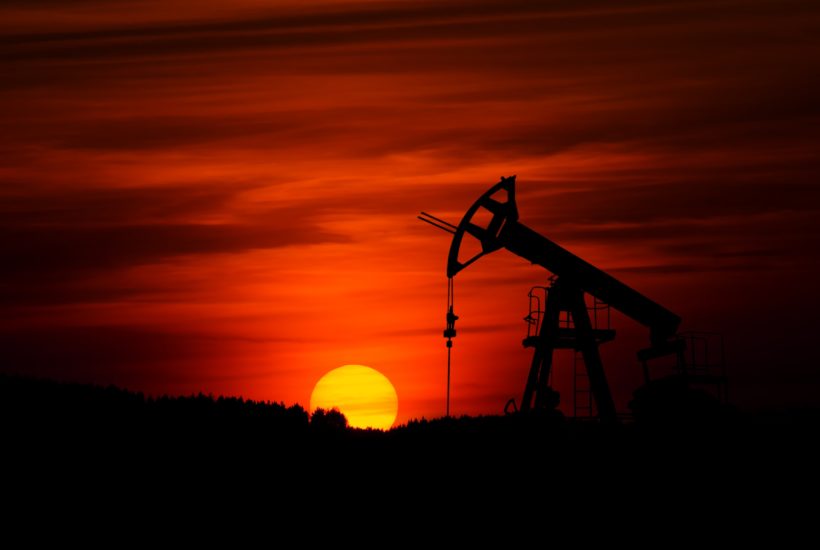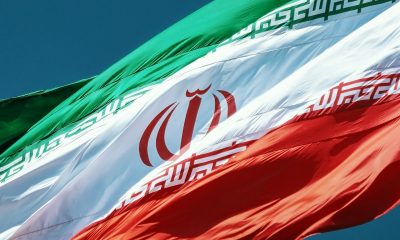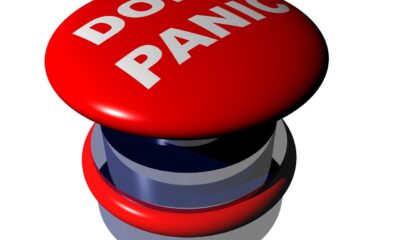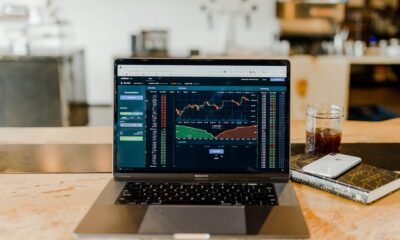Africa
Africa’s economic growth is threatened by the Covid-19 crisis
Oil-exporting countries are likely to be the hardest hit as prices plummet. Since March 6th until March 10th, crude oil prices were in free fall, with some analysts saying that it can go back to its historically low level of 2016, around $30. Not only the oil sector but also other sectors negatively treat the economy of African countries, because of the coronavirus outbreak.

The African CEO Forum should have gathered together some 1,800 decision-makers, business executives, investors or politicians, on Monday, March 9th and Tuesday, March 10th in Abidjan, the economic capital of Côte d’Ivoire. However, the “African Davos,” as some people call this important business event, was canceled at the last minute by its organizers, the Jeune Afrique press group. The reason is the epidemic due to the new coronavirus Covid-19. Only a handful of cases have been recorded across the continent.
The symbol is revealing. Although Africa is still relatively spared in terms of contamination, it is nevertheless suffering the repercussions of the epidemic, on the economic level in particular. The drop in demand in China, the biggest epidemic outbreak, but also the African continent’s main trading partner, should leave its mark.
“The main channel of transmission of the virus to the African economy will be the fall in oil prices, which will severely affect oil-producing countries,” said John Ashbourne, an economist in Africa within the London-based research firm Capital Economics. China is the world’s largest importer of black gold and prices have plummeted since the beginning of the epidemic.
The Born2Invest mobile app delivers trending news from Africa, financial news, business commentaries, and other trending news to keep its readers informed.
The price for a barrel of oil could fall around $30
A debacle now accentuated by the crisis within the Organization of Petroleum Exporting Countries (OPEC), pitting Russia against Saudi Arabia since Friday, March 6th. On Monday, March 9th, crude oil prices were in free fall, with some analysts no longer ruling out the possibility that a barrel of oil could end up back to its historically low level of 2016, around $30 (€26 euros).
This situation could prove catastrophic for major sub-Saharan producers such as Nigeria, Angola or Congo-Brazzaville, or Algeria in North Africa, whose public finances are still struggling to recover from the oil counter-shock of 2014-2016. Sixteen countries on the continent, of which a good half are exporting countries, are already classified by the International Monetary Fund (IMF) as over-indebted or in the process of being so.
According to calculations by the British think-tank Overseas Development Institute, a 5% drop in oil prices over one year could result in a $4 billion (€3.5 billion) loss in export earnings for sub-Saharan Africa. But the downturn is likely to be much more severe. By mid-February, the IMF had already downgraded its growth forecast for Nigeria. Africa’s largest economy is highly dependent on black gold, which accounts for more than 90% of its exports and half of its budget revenues. Its gross domestic product (GDP) is expected to grow by 2% in 2020, instead of the 2.5% initially forecasted.
Negative impacts of the new coronavirus on tourism
While hydrocarbon prices play a key role in the continent’s economic trajectory, it is likely to be negatively influenced by other aspects of the global health crisis. Quarantines and containment measures have disrupted supply chains in China, at the risk of creating shortages and pushing up inflation in a number of African countries, which import massively from the Asian giant low-cost consumer products such as electronics, textiles, household goods, and others.
Some countries also fear the impact of the epidemic on tourism. The collapse in the number of visitors from China, and now Europe – which has also been affected by the epidemic – is very bad news for the big tourist destinations such as Mauritius, Senegal, Tanzania, and Cape Verde, but also for the Maghreb countries. Morocco has seen a sharp drop in arrivals from China, while the brand new airline between Casablanca and Beijing was interrupted at the end of January.
The rapid spread of the virus in Italy, France, and Germany is another blow to the continent. “It is more serious for North Africa, where certain countries, such as Morocco and Tunisia, are highly integrated into European value chains, in the automotive, textile or aeronautics sectors,” explained Dominique Fruchter, an economist at Coface.
It remains to be seen whether Africa will be able to avoid massive contaminations with this viral infection. If not, the consequences are likely to be difficult to manage, as many countries on the continent suffer from fragile health systems and lack fiscal space.
The IMF announced in early March that it would mobilize $50 billion (€43.5 billion) to fight the new coronavirus. This sum is earmarked for emerging and low-income countries to meet their possible needs, of which $10 billion (€8.8 billion) will be available at zero-interest for the poorest states. “It is clear that we are giving priority to African countries that have already faced difficulties,” IMF Managing Director Kristalina Georgieva said.
__
(Featured image by Zbynek Burival via Unsplash)
DISCLAIMER: This article was written by a third party contributor and does not reflect the opinion of Born2Invest, its management, staff or its associates. Please review our disclaimer for more information.
This article may include forward-looking statements. These forward-looking statements generally are identified by the words “believe,” “project,” “estimate,” “become,” “plan,” “will,” and similar expressions. These forward-looking statements involve known and unknown risks as well as uncertainties, including those discussed in the following cautionary statements and elsewhere in this article and on this site. Although the Company may believe that its expectations are based on reasonable assumptions, the actual results that the Company may achieve may differ materially from any forward-looking statements, which reflect the opinions of the management of the Company only as of the date hereof. Additionally, please make sure to read these important disclosures.
First published in LeMonde, a third-party contributor translated and adapted the article from the original. In case of discrepancy, the original will prevail.
Although we made reasonable efforts to provide accurate translations, some parts may be incorrect. Born2Invest assumes no responsibility for errors, omissions or ambiguities in the translations provided on this website. Any person or entity relying on translated content does so at their own risk. Born2Invest is not responsible for losses caused by such reliance on the accuracy or reliability of translated information. If you wish to report an error or inaccuracy in the translation, we encourage you to contact us.
__
(Featued image by Zbynek Burival on Unsplash)
DISCLAIMER: This article was written by a third party contributor and does not reflect the opinion of Born2Invest, its management, staff or its associates. Please review our disclaimer for more information.
This article may include forward-looking statements. These forward-looking statements generally are identified by the words “believe,” “project,” “estimate,” “become,” “plan,” “will,” and similar expressions. These forward-looking statements involve known and unknown risks as well as uncertainties, including those discussed in the following cautionary statements and elsewhere in this article and on this site. Although the Company may believe that its expectations are based on reasonable assumptions, the actual results that the Company may achieve may differ materially from any forward-looking statements, which reflect the opinions of the management of the Company only as of the date hereof. Additionally, please make sure to read these important disclosures.
First published in vozpopuli, a third-party contributor translated and adapted the article from the original. In case of discrepancy, the original will prevail.
Although we made reasonable efforts to provide accurate translations, some parts may be incorrect. Born2Invest assumes no responsibility for errors, omissions or ambiguities in the translations provided on this website. Any person or entity relying on translated content does so at their own risk. Born2Invest is not responsible for losses caused by such reliance on the accuracy or reliability of translated information. If you wish to report an error or inaccuracy in the translation, we encourage you to contact us.

-

 Crypto1 week ago
Crypto1 week agoBitcoin Rebounds Above $70K as Crypto Markets Show Fragile Signs of Recovery
-

 Biotech6 days ago
Biotech6 days agoEurope Launches Personalized Cancer Medicine Initiative
-

 Impact Investing2 weeks ago
Impact Investing2 weeks agoEnfinity Launches First Solar Plant in Italy with Microsoft
-

 Crypto1 day ago
Crypto1 day agoBitcoin Wavers Below $70K as Crypto Market Struggles for Momentum
























